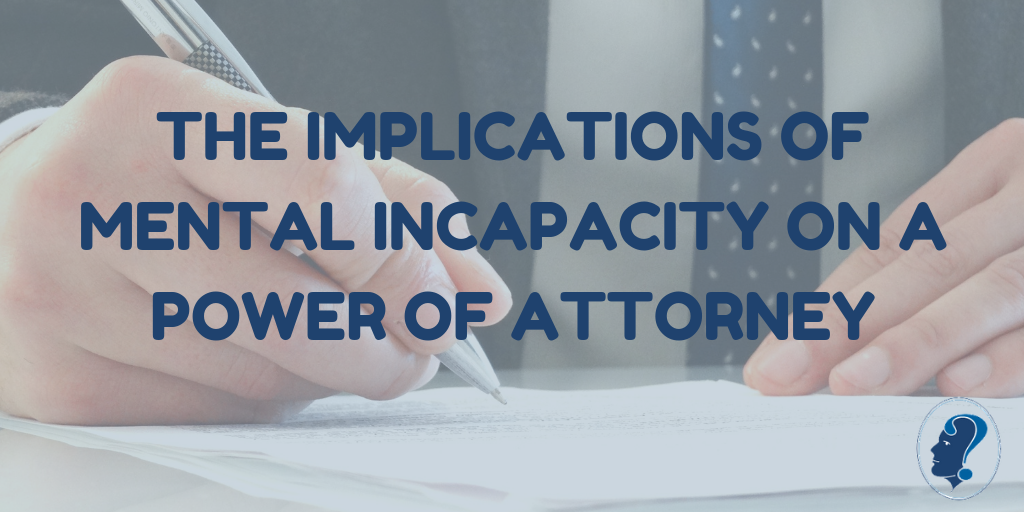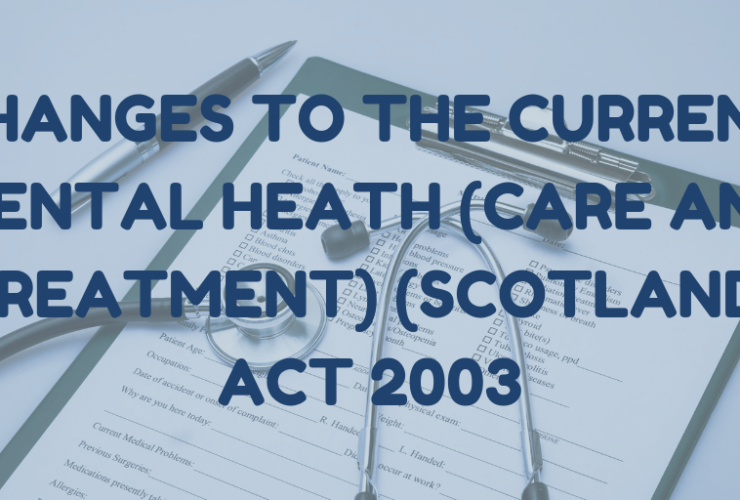A blog assessing whether a power of attorney can overrule patient liberties when they no longer possess the capacity to make their own arrangements
When a person with capacity withdraws their consent, this has direct implications on their rights and liberties. However, there seems to be a bit of a grey area surrounding potential POA’s for patients who don’t have mental capacity. While this has definitely been discussed from a legal perspective, it remains a delicate situation which can not always be resolved by established laws. Additionally, this is often complicated by the fact that unique legal conditions and stipulations are applicable for each individual, making each case as complex and unique as the next. In this blog, we’ll look over some of these considerations, hoping to expose just how precarious this issue is in practice.
A Grey Area
Anyone with capacity can withdraw consent at any given moment, which means any future action that would jeopardize their liberty would need to be granted by a court. However, there is plenty of legal justification to support decisions that do limit people’s liberties. After all, if the adult did specifically address arrangements that included a “deprivation of liberty,” as the Mental Welfare Commission calls it, then it is legally justified to assume that these must be adhered to.
But what do you do when a patient loses capacity after their Power of Attorney has already been made? Naturally, things are not always as clear-cut when it comes to patients who lack the mental capacity to make their own decisions. However, this is especially true when you consider some of the most important principles set out in the Adults with Incapacity Act, which specifically state that you must respect the “wishes and feelings, past and present, of an adult who subsequently has lost capacity.”
Power of Attorney and the Adults with Incapacity Act
As a result, patients who appear to disagree with these decisions or are uncomfortable with the arrangements being made, need to be considered carefully, so as not to taint their previously validated and legally binding Power of Attorney with a lack of liberty. The Adults with Incapacity Act does not provide any specific guidelines for this situation, and how much importance should be placed on a person’s attitude to their situation after their loss of capacity. And while any person has the right to challenge these decisions, this is more complex when exercised in practice. There is something innately contradictory about challenging the decision of a Power of Attorney that you yourself enacted, transferring your power and restricting your own liberty in the process. If that doesn’t make things complicated enough, there is also the issue of which authority has the power or right to overrule a Power of Attorney made by an adult who now lacks mental capacity, should that same adult protest the proposed arrangements made for them.
This complicated matter deserves our utmost attention and poses a difficult query for lawyers and those granted with a Power of Attorney. Until there are specific guidelines which can negotiate this tricky terrain, there will continue to be cases where the individual liberties of adults without capacity could be threatened.
Independent Psychiatry
Please contact Independent Psychiatry for more questions or if you require medico-legal reports for you or your client. We have experts who provide comprehensive and efficient incapacity assessments for Welfare and Financial Guardianships under the Adults with Incapacity Act, having provided in excess of 230 guardianship assessments last year in Scotland. We are aware of the statutory timescales and thus provide the flexibility to turn around reports within tight deadlines. We can usually assess clients wherever they are based, including care homes, hospitals and home visits.


